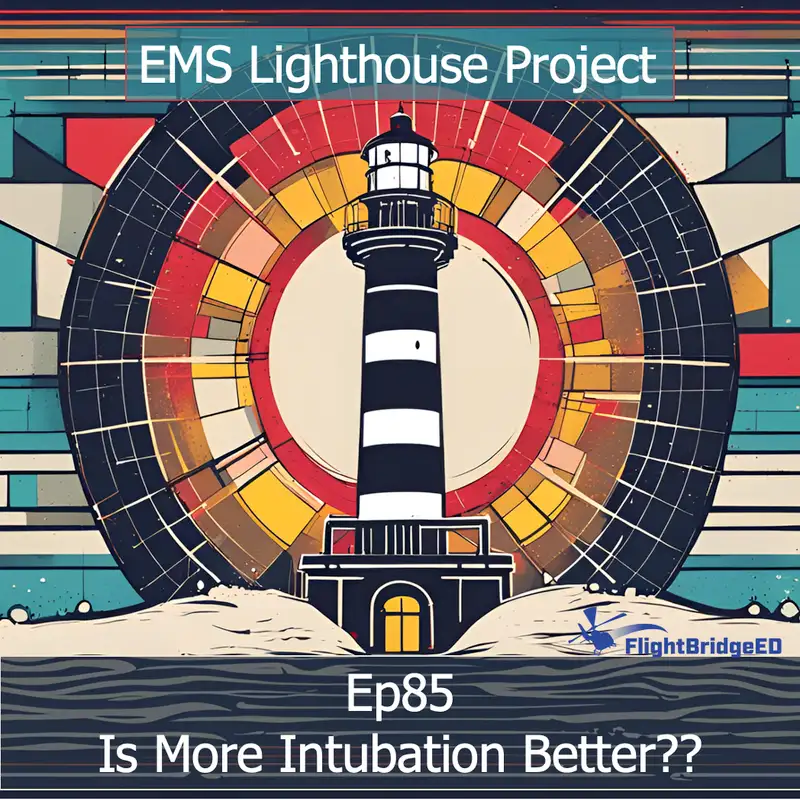Ep85 - Intubation: Is More Better?
Download MP3There is evidence that clinician experience with intubation is associated with improved success rates and evidence that missed intubation attempts are associated with worse survival, at least in cardiac arrest. The recent Airway EBG paper recommends EMS agencies with low intubation proficiency should use SGAs instead of intubation in cardiac arrest. This all begs the question of whether agencies who intubate more often have higher success rates than those who do not. That’s precisely the question a new paper from Annals of Emergency Medicine attempts to answer. Join Dr. Jarvis to discuss the paper and his thoughts on integrating its findings into practice.
Citations:
1. Jarvis JL, Panchal AR, Lyng JW, Bosson N, Donofrio-Odmann JJ, Braude DA, Browne LR, Arinder M, Bolleter S, Gross T, et al.: Evidence-Based Guideline for Prehospital Airway Management. Prehospital Emergency Care. 2024;28(4):545–57.
2. Murphy DL, Bulger NE, Harrington BM, Skerchak JA, Counts CR, Latimer AJ, Yang BY, Maynard C, Rea TD, Sayre MR: Fewer Tracheal Intubation Attempts are Associated with Improved Neurologically Intact Survival Following Out-of-Hospital Cardiac Arrest. Resuscitation. 2021;July 13;167(Oct 2021):289–96.
3. Crewdson K, Lockey DJ, Røislien J, Lossius HM, Rehn M: The success of pre-hospital tracheal intubation by different pre-hospital providers: a systematic literature review and meta-analysis. Crit Care. 2017;December;21(1):31.
4. Thomas J, Crowe R, Schulz K, Wang HE, De Oliveira Otto MC, Karfunkle B, Boerwinkle E, Huebinger R: Association Between Emergency Medical Service Agency Intubation Rate and Intubation Success. Ann Emerg Med. Published online: January 2024. doi: 10.1016/j.annemergmed.2023.11.005 (Epub ahead of print).
5. Carlson JN, De Lorenzo R: Does Practice Make Perfect, or Is There More to Consider? Ann Emerg Med. Published online: January 2024. doi: 10.1016/j.annemergmed.2024.04.019 (Epub ahead of print).

